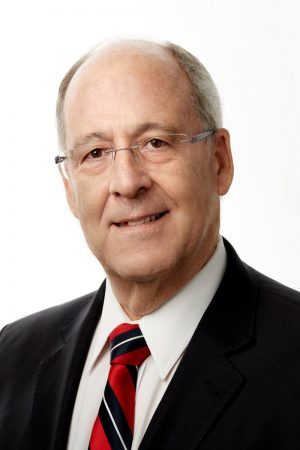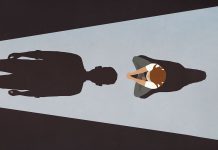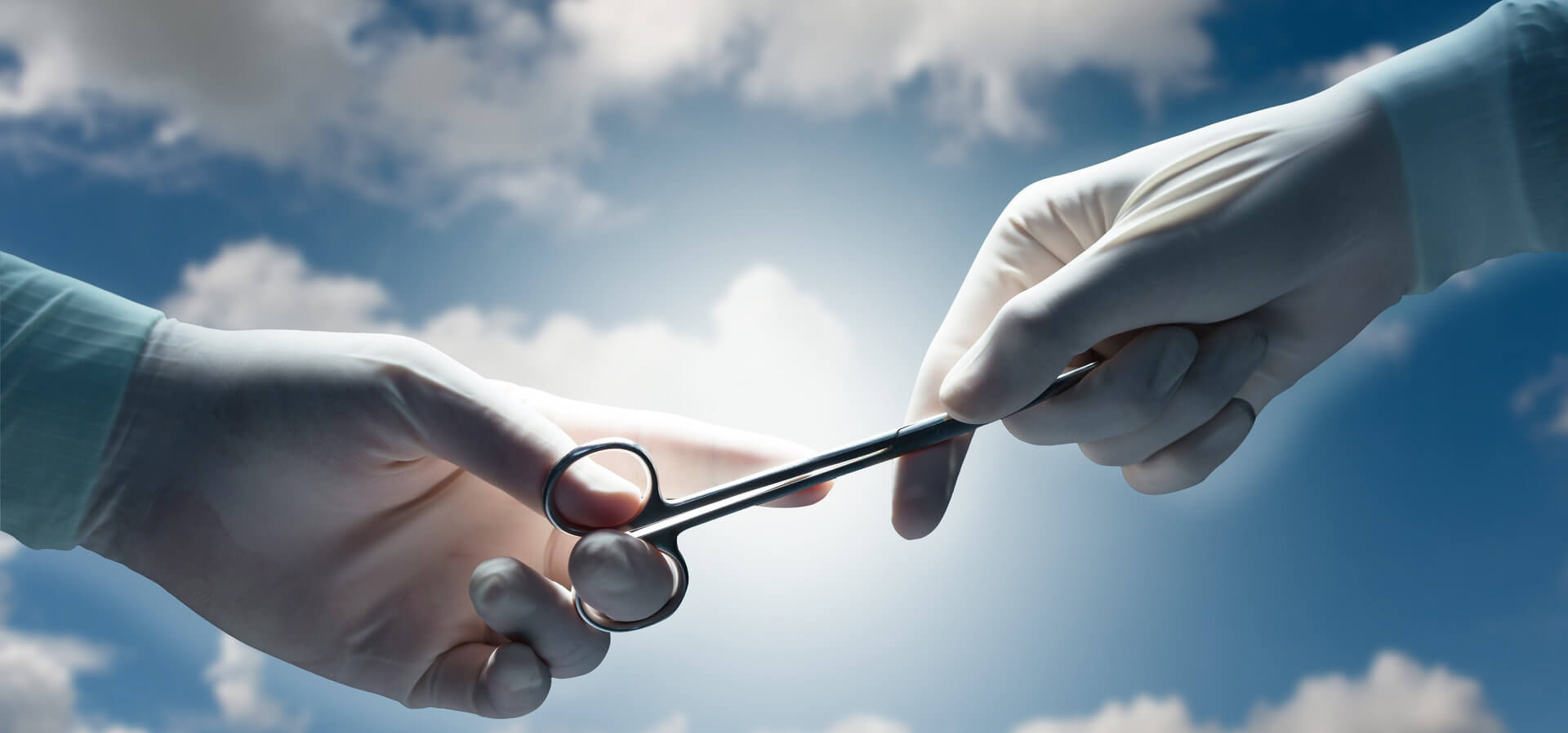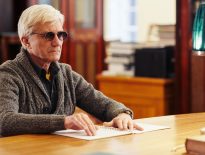Dr Peter Landless presents a fascinating history of transformation within his native South Africa, a transformation which has impacted the world.
These include social and political transformations, represented by the abolition of apartheid, and scientific transformations, in the form of the first successful heart transplant surgery. Dr. Landless is the director-elect of the Seventh-day Adventist world church’s Health Ministries department, based in Silver Spring, Maryland, and the director of the ICPA (International Commission for the Prevention of Alcoholism and Drug Dependency). Dr Landless is also a very eloquent speaker, who uses his oratorical gift to promote a healthy and responsible lifestyle around the world. You will find out to whom he owes his eloquence.
You come from a place that is very fascinating for many people but especially for me. South Africa has been a fascination for me since I was about 16, for several reasons. Tell us about your childhood.
I was born in South Africa. South Africa is for me home, a country that I love, a beautiful country, which has had a very chequered history; a history which has been fascinating, shameful, and surprising at the same time, considering the changes that took place in 1994. The world stood aghast at them.
My own world and memories are framed so much on the backdrop of a godly family. I remember from my earliest years being brought up, moulded, and encouraged within a family that loved God and honoured Him. My mother taught me and my brother about the protective love of God, and also about the importance of serving and following Him.
Every morning, our mother would ensure breakfast was ready on time. If we were late, we might miss breakfast, but we would not miss having a reading from the Bible and a prayer. She would say it was like “putting a hedge around you.” Shortly before she died, my mother said to me, “Remember, even when I am gone, my prayers that I have prayed in the past are lodged at God’s throne for you.”
And that means a great deal to me. It means to me that my mother and my father—but particularly my mother in this respect—helped us to understand from our earliest years the importance of wholeness not only physically, but spiritually, mentally and emotionally. So those are the things that I cherish.
As I look back at my life from this vantage point, of meeting with heads of state and speaking in public in big university settings, and on international television, I think that the Lord had a hand in preparing me for these things as a child. One of the things that my parents ensured that we learned to do was to speak well, so they sent us to special speech training.
Is that so?
Yes, I did eight years of speech and training, with exams, which took me right to what is called a licentiate level in the Royal School of Speech.
That was not part of your regular curriculum; it was an extra.
It was an extra. So that was after school. And it was wonderful.
It’s the first time I’ve heard of such a thing. Usually, parents send their children to study the piano, to the gym or to swimming lessons. What do you learn and practise at that school? To pronounce correctly, to formulate clear sentences, to speak eloquently and to modulate the voice?
All of those things: project the voice, modulate the voice, learn and recite poetry, read prose, make impromptu speeches. And then there was an exam every year. There would be a theory exam and then there would be a practical exam. My late mom was Greek, so she also felt that it was important for us to learn to read, write, and speak Greek as well, so I went to modern Greek classes once a week.
My late grandfather, who had a strong influence on my life, was originally from Europe, lived in Egypt for a time, and spoke seven languages, including Arabic, English, French, Italian, Greek, and Spanish. He would say to me that an additional language is like an additional soul—it’s just another window into life.
Dr. Landless, I don’t want to digress, but I would like to ask you when did you become aware of the fact that society in South Africa was structurally wrong?
Interestingly, you’re asking a painful question but I’m glad you’ve asked it. We were not wealthy, but we had what we needed and lived in a middle-class suburb. We had people who would come in and help with the garden, and we loved those people and they were part of our family. And I’m talking from the eyes of a little boy. I didn’t even realise that there was any abnormality to the system; it was only as I started to grow a little older.
During my high school years, I began to notice the injustices in society, although in South Africa press censorship was very severe, and history was studied from the colonial perspective, from the white persons’ perspective.

History was one of my favorite subjects, and the history teacher drew our attention to the fact that the school offered us a one-sided perspective on things and ignored the injustices and inequities of the system of apartheid. And then it all started to come to me as a very clear issue.
Shortly after Chris Barnard did the first heart transplant I went to medical school. And in medical school it was as if the scales fell from my eyes. In the university I went to, the University of the Witwatersrand—one of the top medical schools in the world—I used to go at lunch time to meetings where they were talking about the civil rights movement and they would be showing movies about Martin Luther King, so I had a revelation about the problems that we were facing in South Africa. This changed the direction of my life.
The whole world watched anxiously what was happening in South Africa and it was a feeling of relief and wonderment when what could have become a massacre or perhaps a genocide turned out to be a peaceful process. What do you think is the explanation for this?
There were probably three factors. First, I believe that, in His mercy and grace, God guided the affairs, or people allowed Him to guide the affairs. I believe He is always willing to do that. But the people allowed that. The majority of people in South Africa are wonderful people. They are forgiving, kind, and lovely to be with.
I do know that prior to the 1994 elections, there was a tremendous amount of focused prayer. It wasn’t a secret that apartheid was coming to an official end. Realising there was going to be a period of transition, there were people who were praying fervently that God would protect the country. An additional factor was the work of Nelson Mandela, a figure who was larger than life, an individual who played an amazing role in the reconciliation.
It is just amazing that God implanted in him a kind of forgiveness factor. His influence in the world was and remains amazing even after his passing. His influence in South Africa was seminal. He would just put his foot down on certain issues. He had a lot of opposition, within his own ranks, for his nonviolent ways.
He rejected revenge or hatred and bitterness.
Yes. And people were amazed at this. People said to me that a person couldn’t be like that. And I say to them that that’s who he was. I had the privilege of being closer to him, as I assisted a team of physicians who worked with him. He was a humble, kind, very smart, engaging man, who was at home with anybody.
How did you come to study medicine?
I was going to become a pastor. It was probably around the middle of my high school years when I started to think that maybe I would like to do medicine. There was this struggle in my heart. Should I become a pastor, or should I become a physician? I started to read more of the writings of one of my favourite writers, who talked about the blended ministry. I began to understand that as a physician, you can deal and work in the physical realm but you can also work in the spiritual realm, and that fascinated me.
I was accepted into medical school directly after high school, in a very competitive situation. There were thousands of applicants and they accepted 150. I got a letter saying “You have been accepted. Let us know within 24 hours, because there are people waiting for the slot if you don’t take it.” I accepted, not knowing where the money was going to come from. Then I got another letter. My father had spent many years working for a company in South Africa whose managing directors had created a scholarship for deserving scholars, and I was very blessed to get a full scholarship for the entirety of my medical training.
Immediately after getting admitted?
Yes. The scholarship covered all my expenses, including books, for all my college years, so it was a real blessing from the Lord.
Did Christiaan Barnard perform his famous surgery before you got accepted to medical school?
It was just before and that really upset me. I’ll tell you why. I’m joking, of course.
Seriously? I, too, was fascinated by Dr. Barnard’s work. I was a little younger than you, and the success of this doctor made me think seriously about studying medicine, but in the end I decided to take a different path.
So, we both wanted to be doctors. I will never forget. It was in December 1967, and in February of the following year I started medical school. When I found out about the transplant, I asked myself: “Will there be anything new for me to do when I’m finished, if they keep doing all these things?” The ripple effect that’s had on the world of medicine is just amazing. That caused a tremendous change in the whole of cardiology, which is my specialty.
Why did you choose cardiology?
As we talk, I’m more and more aware that that very event may have had something to do with my decision. My very first exposure in the clinical years was at one of the biggest hospitals in Africa, called Baragwanath Hospital. We had a professor who took particular interest and went to the heart clinic and would bring in special patients to teach the new students. He had such passion and made it so interesting. It was as if you could live into the heart of the being and that set my interest in internal medicine but very specifically into cardiology.
Tell us a little bit about your work and the 11 years in Lesotho.
In my fourth year of medical school, the same year I realised cardiology was what I really wanted to do, I went through a struggle with my faith. That occurred in my second year, when I started to meet the most brilliant professors. One of them was an atheist, and I started to question things a lot. I struggled with this in my second and third years of college. I did not tell anyone, not even my parents.
That actually was good for me because it helped me to really wrestle with whether or not my faith was what I believed it was. It was almost like a time of going through a fire of purification of my thinking. It was at four in the morning one day, after we’d been working all night, the patients had all been settled, and I was sitting with a young consultant. He was a very remarkable Christian—not a “preachy” Christian, not one who was forever telling you things, but he lived his faith. I said to him, “Have you ever struggled with your faith?”
He told me, “Yes, absolutely, but it’s a matter of credo, of belief. We don’t always understand certain things, we can’t always put things in a test tube, or into an equation, but belief is a gift.” That moment just settled my faith. Then I was invited to practice medicine right at the border of Lesotho. And so, we went to this little town and we had eleven years of amazing experience, with wonderful work, wonderful opportunities to share, to care, and to develop. When we went, I said “Lord, I cannot do this, unless You go with me.” And He never let me down.
How early in life did you become aware of the fact that your church possessed a great heritage, a lifestyle that leads to complete health, and what was your reaction when you understood this? Did you like it; did you dislike it?
Probably from my first memories because that is how I was brought up. We were not a vegetarian home but we ate meat only seldom. We only ate clean meat in small amounts, and my mother moved more and more towards the vegetarian lifestyle.
Did you enjoy it?
Oh, yes, very much. I decided to become a vegetarian when I was 18. I had been reading books very thoroughly for myself. I had been listening before, but now I was searching for myself.
You asked when did I realise I had the heritage. I realised it as a little boy because I used to go to the special activities for the kids and you had to fill in that you brushed your teeth every day, that you drank water, that you used the bathroom regularly and that you didn’t eat between meals. That was a tough one because my mother was a great cook and she would bake beautifully, but that was something we were encouraged to not do [eat between meals], and to go to sleep at a reasonable time, and all those good things.
I gradually became convinced of the total health message. That was a progressive understanding which came along with the blended ministry, because that is a very important component of holistic wellbeing and of service. To be healthy is not just so that we can have a selfish longevity but to be of service.
When I was studying medicine, when I looked at what we were learning and what I’d read as a young person and as a kid, what had been written a hundred years before was becoming a new discovery. And that strengthened my faith and I said to myself, “What a wonderful heritage!”
The health message is not a list of do’s and don’ts. It’s not a list to check off and say, “Now I’ve eaten my fibre for the day and drank my water for the day.” It is not that. It’s to allow the graceful message of health and wholeness which God has given to us even in our brokenness. That’s what makes it a holistic message.
I recently had an interesting interaction with a Jewish gentleman, who has done extensive study on what Sabbath is all about and how it influences our wellbeing. As Seventh-day Adventists, we have what is called the “Adventist health advantage.” We live seven to nine years longer, we have a better quality of life, but there is a factor which remains to be teased out, if we were to look at it on a psychological and a scientific basis. The Sabbath rest plays a significant role in the health benefits of people who adhere to this faith.
One of the most crucial components of the health message given to this church is to care for the whole being. The Sabbath, prayer, meditation on the works, ways, and Word of God, make a difference as to who we are. Forgiveness and gratitude are also very important. I know it sounds like the speech training influence again, but we need to cultivate an attitude of gratitude.
I also detected other formulations that are, I think, the result of your speech training.
An attitude of gratitude is not a platitude… The scientists are writing about it. I read just two weeks ago that people who are appreciative have a better quality of life. People who have friends, are cared for within a family, who care for their parents, children, people who have significant others in their lives have better immune systems and have a lower rate of depression and suicide. Young people who cultivate quality relationships do better at school, face less bullying, less physical violence and less sexual experimentation.
How important is it to protect the environment when it comes to health?
We would be negligent not to care for the environment. Some people have an eschatological viewpoint, saying, “We don’t need to worry about this, the end of the world will come anyway.” But in His Word, God says He will destroy those who destroy the earth. It pains me to see how we don’t care about the environment. You cannot have health if you do not have clean water and breathe clean air.
Is there a connection between cultivating healthy practices and maintaining a clean environment?
Taking care of the environment is key. I believe it is a Christian responsibility. I’ll never forget sitting at a dinner organised by the head of medicine. He is a highly renowned international expert on blood diseases and iron metabolism. He noticed that I was not eating meat and asked me, “Why don’t you eat meat?” I said, “I’m a vegetarian.” I think he was agnostic, but we had some interesting discussions about faith, and he said to those who were with us, “Dr. Landless is the only one who cares about the environment. “
That was his first remark?
Yes. This was in 1992. It was at the beginning of the environmental movement. He said: “Do you know how much grass had to be consumed to make this steak? We would do much better if people adopted a plant-based diet.” When we think about the vested interests in the meat and dairy industry, we think it’s almost like fighting a losing battle, but that doesn’t mean we shouldn’t fight it.
Throughout its history, the Adventist Church has strongly opposed alcohol consumption. Is this position supported by scientific data?
As a cardiologist, patients would come and say to me “Come on, doc, don’t you read magazines, don’t you read the news, don’t you hear the scientific report about the benefits of alcohol, or red wine?” In 1979, the French paradox was described, and since then it has been taken as a given that alcohol is good for the heart. There is literature which shows that. But many studies have shown that confounding variables were not taken into account at the time, including socioeconomic circumstances, education level, availability of healthcare and health insurance, and even marital status and religiosity.
There was an analysis done in 2006 of about 70 of the most prominent studies and they showed that when you take into account many of the confounding variables, not only was there no positive influence of alcohol but it was a negative influence. There are large bodies in the world that are warning of the dangers of alcohol consumption such as the World Health Organisation. At last, they are beginning to talk about it, like they did about red meat the other day.
They have made a statement over a long time, that people who do not take alcohol should not start taking alcohol. There is a very big group called the World Cancer Research Foundation. They have done studies on hundreds of thousands of patients and analysed the data. There is no doubt that apart from addiction, the violence that comes with alcohol, the accidents, when it comes to the risk of cancer, there is no safe level of intake.
No safe level?
No safe level. In light of diseases like breast cancer, colon cancer and other cancers, alcohol is what we know as a carcinogen. There’s no safe level of intake. In the pregnant woman, there’s no safe level of intake. On a scientific level, it’s a done deal and it’s decided. And the literature is coming in daily, confirming that.
The most important reason, as a Christian, and as a Seventh-day Adventist Christian, why I do not use alcohol—apart from the family history of the possibility of being an alcoholic—is that it’s a spiritual issue. Anything that harms this portion of the brain, the frontal cortex, we should avoid. Whether it is lack of sleep, over-the-counter medications which are abused, or particularly alcohol and recreational drugs, we should avoid it.
Thank you very much, Dr. Landless.
Note: This is a TV interview by Adrian Bocaneanu, broadcast on HopeTV channel Romania. The transcript of the interview has been edited for brevity and clarity. You can watch the full version here.


















